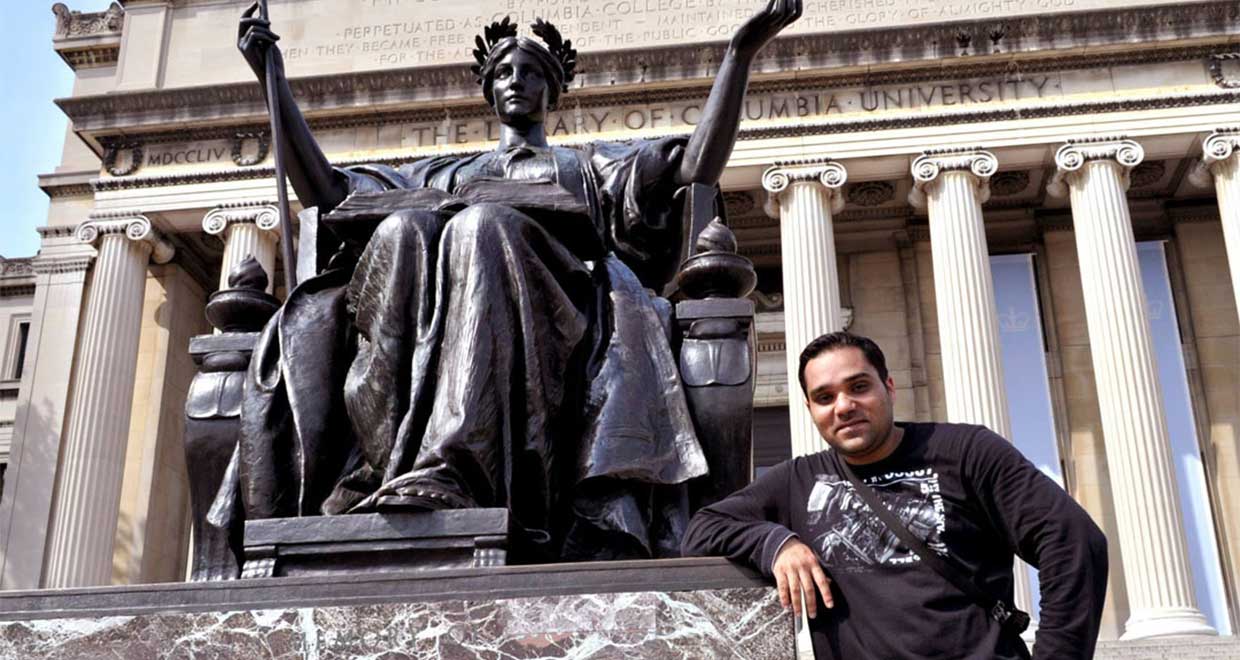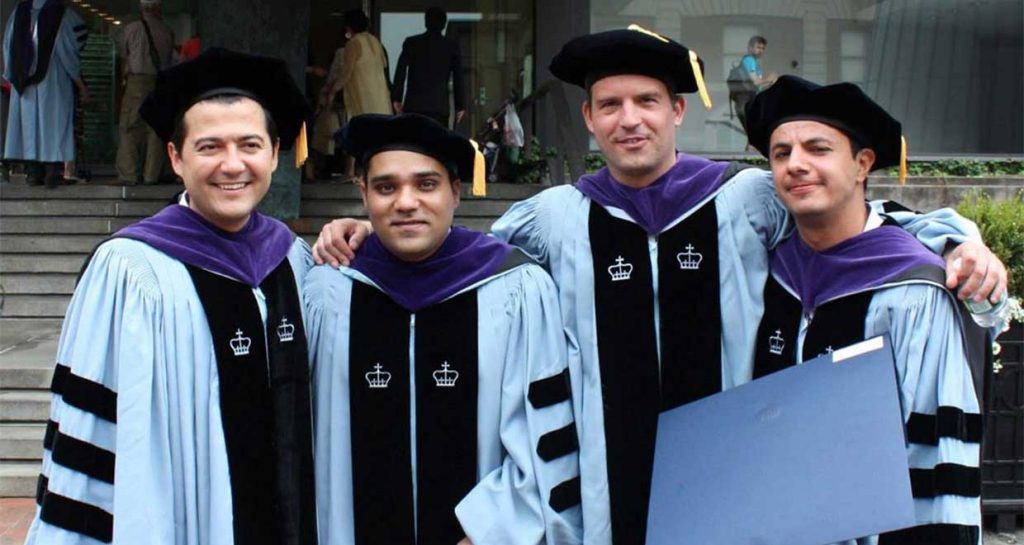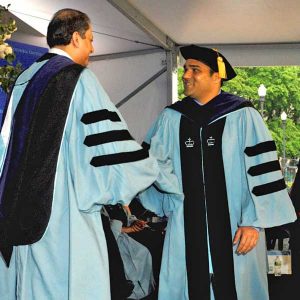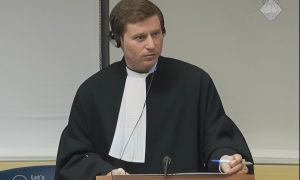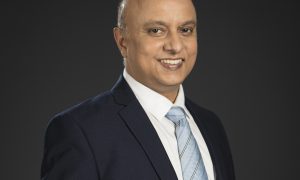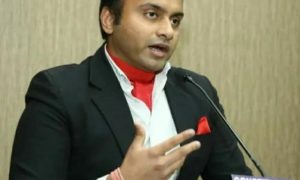Khagesh Gautam graduated from Campus Law Center, New Delhi in 2008. Subsequently he has taught at tutorials which train law candidates for the CLAT. After working as associate for Desai & Dewanji, he went on to pracitise at the Punjab and Haryana High Court. He is currently studying at the prestigious Columbia Law School. During his time in Columbia Khagesh has also been documenting his experiences in his photoblog giving viewers a glimpse of life in New York.
In this interview, he talks about:
- His passion for Constitutional Law and the reason he chose to pursue an LL.M.
- Picking the right University for your LL.M.
- His experience at Columbia University – faculty, environment, accommodation and recruitment.
What was your motivation behind doing LL.M.?
I decided to do an LL.M. in early 2011. I made up my mind in April, 2011 and then started looking for law schools that I should apply to.
My motivation to pursue one was strictly intellectual. I wanted to do a serious study of comparative law with particular emphasis on comparative constitutional law. I graduated from Campus Law Centre, Delhi University in 2008 and the seeds of serious study of constitutional law were sown in me in the second year of law school itself. That passion continued with me through the four years I practiced law. I was lucky to get an opportunity to work on some really complex constitutional matters during my practice which helped fuel my passion. Somewhere in between college and work, I also read some books on American history and political science and that got me interested in American Constitutional Law and comparative constitutional law. So I decided to do pursue an LL.M.
How did you choose Columbia University?
I started my research by first, making a list of law schools that I would like to study in. Then I went to their respective websites and looked at the courses they were offering. Any school that was not offering the subjects that wanted to study was crossed off my list. After this, I looked at the professors teaching those subjects and did some online research to find out what the professional standing of these professors was. Following this method, I was able to zero in on a few law schools that were offering the courses that I wanted to study. Columbia Law School was on the top of my list because they had a special chair on Indian Constitutional Law (Dr. B.R. Ambedkar Chair). The faculty there was brilliant. For example, in this last semester, I took a course on Indian Constitutional law that was taught by Professor Sudhir Krishnaswamy. And previously, the same course had been taught by Professor Akhil Reed Amar who is a highly respected name in American Constitutional Law.
I applied to Columbia, Virginia, University of Pennsylvania and Harvard. I wanted to apply to Yale, Michigan and Cambridge but due to professional obligations I wasn’t able to complete the application formalities on time.
I began the process of choosing a University by first consulting with my friends who had done their masters from foreign law schools. They advised me to first, make up my mind as to what I wanted to study and then look for law schools that offered those courses. The idea to research on the professional standing of the professors teaching the course was my own I also spent some time reading the published works of some of these professors.
What are you studying at Columbia University?
I always wanted to study comparative constitutional law. In my first semester at Columbia I took a course in American Constitutional Law and in Indian Constitutional Law. I took a seminar on Regulation of Capital Markets in which I wrote a paper on Credit Rating Agencies and the First Amendment Commercial Speech Defense that they took post the 2008 financial crisis. Even in a Capital Markets course I was doing constitutional law! I took a course in International Investment Treaty Arbitration as well. In the second semester that is about to begin, I am concentrating completely on comparative constitutional law and some more international law. I spend most of my free time reading about competition law (or anti-trust law as it is called in the US).
How has your experience been so far?
My experience has been good so far. The facilities in Columbia Law School are amazing and I have been able to put the resources in the law library to good use. The only thing that could stop you from pursuing knowledge at Columbia Law School is you, yourself, because every single resource conceivable, both academic and otherwise, is made available to you. There are several societies and groups that one can join. I joined the anti-trust group. There are also always some distinguished personalities visiting the University for a lecture or a talk. I attended Justice Aahron Barak’s (former President of the Israeli Supreme Court) lecture on proportionality. There was also a series of guest lectures on monetary systems last semester. I managed to attend a few of them.
On a personal front, I enjoy photography and New York City is an amazing place for virtually every kind of photography. I have spent quite some time walking around with my camera. Living in NYC itself is a unique experience. There is always something going on that you would be interested in, on or off campus.
How’s the Indian fraternity over there? Are there many Indian students?
Apart from the few American JD students of Indian origin that were classmates in the course on Indian Constitutional Law and other courses, and the few family friends that I have here, I can’t really say much about the Indian fraternity. The students that I have met seem to be very hardworking and focused on their studies. I understand that the Indian professionals in USA, most of whom are in the IT field, have done well for themselves.
There are about twelve or thirteen Indian law students in the LL.M. program in the 2012-13 batch.
How is the recruitment/ placement situation for overseas students?
There is a placement office here which is very active and helpful. I have several friends and colleagues, Indian and from other countries in the LL.M. program who will soon be sitting for interviews. I think every major British and American law firm is represented in the placement interviews. Most of the jobs seem to be in the transactional corporate practice areas.
As to how many international LL.M. students will be able to get employment remains to be seen. It also depends on what kind of person the law firms are looking for. For example, if a firm is specifically looking for a Spanish or Mexican speaking lawyer then the potential group of applicants becomes smaller. A few firms seem to be looking for people well versed in public international law for investor-state arbitration and similar disputes but even in these jobs sometimes, there is a language qualification.
How is the academic schedule?
The academic schedule is busy and demanding. The standard objection is that the readings prescribed for a course are unjustifiably more than the credits for the course. Though I concede that in some cases this objection is true, on the whole I am satisfied with the quality and quantity of reading required for the courses that I took. I have interacted with students taking courses in corporate laws and in my opinion, they seem to have been prescribed too much to read. The casebooks prescribed are usually expensive but one can manage to rent them or buy used copies online for cheap.
The academic work depends on what kind of courses you take. For example, if you take a seminar course and have to write a paper for it then things are different. Though the readings for the course might not be much, you would have to do additional research for your paper and then actually write the paper, which is not easy if you are trying to develop or propose a new idea. If you are taking an exam course then things are different because now you may not have to write anything new but you still have to do all the reading prescribed. Even if it is an open book exam, which most of the exams that I know of are, you still have to do your reading thoroughly.
What about accommodation?
Columbia Law School LL.M. students are not allotted accommodation in campus dorms. Most of the LL.M. students live in Lenfest Hall (in either studios or apartment shares), Lionsgate (studios or apartment shares) or other Columbia University Apartment Housing facilities. I was able to secure housing through the Columbia University Off-Campus housing facilities. Housing in New York can be expensive so one needs to be thorough in one’s efforts to find housing close to campus which is affordable and comfortable.
One of the first things I did after coming to New York was to start a photoblog. This is the link to the photoblog. This blog has pictures taken at the Columbia campus, outside my apartment building etc. Some of them are citiscapes and nightscapes of New York. I will continue to post on this blog for the duration of my stay in New York.
Tell us about your classmates – was there a predominantly international crowd? What is the general age group of students?
In the LL.M. course the crowd is truly international and almost all countries in the world represented. The general age group seems to be between 27 and 29. Though I have not been able to interact with all the students every single one that I know of has had some kind of work experience before or is pursuing a Ph.D. in his or her home country. An overwhelming majority of all LL.M. students have an ambition to clear the New York Bar Exam and start practicing in New York.
Do you get time for any extra-curricular activities?
I joined the Legal Outreach program here as a Constitutional Law Debate Coach. In this program they pair high school students with law school students who coach these high school students for their constitutional law debates. I was assigned a high school sophomore student to coach last semester. The problem was based on economic rights. My student won that debate and I had the opportunity to meet her parents, who were very kind and humble people, after the prize-distribution function. It was a great experience overall. This semester I have been assigned another high school student. The problem is on the constitutional validity of the Defense of Marriage Act which deals with the legality of same-sex marriages which is a big issue in America right now. I am having a great time coaching these high school students. This is the only extracurricular activity I am actively engaged in.
How does one go about scholarships? Does the institute offer any scholarship?
Every law school has a list of scholarships available on their website. That is usually the starting point. There are other scholarships like Rhodes and Fulbright etc. which are also available to Indian students. Columbia Law School offers scholarships and fee-waivers. There is a fee-waiver form that one must fill and submit. They consider every application for waiver and decide accordingly i.e. whether or not to waive fees and if yes, then how much to waive. All this information is easily accessible on the internet.
What are your future plans? Going forward, how do you expect this experience to influence your career?
The future is always uncertain. My long term plan is to become an academician in constitutional theory. The immediate plan however, is to find a job that allows me to pay off my student loan as quickly as I can. The way I see it now, I might have to return to practising law but I have no ambition to do so in New York. If I do return to practice, it will be in India.
There are two ways in which I see this experience influencing my career. First is an intellectual influence, as I have had access to a wealth of resources and knowledge that I never had in my life before and have had the opportunity to come across some really cutting edge legal research – intellectual and empirical. Thus, the intellectual influence has been immense. Second is a professional influence as I have met like-minded people from across the globe with whom I share common interests. I have been lucky to make friends with some very intelligent people during my stay here.

